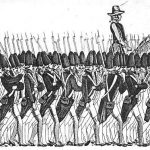The Senate is the upper chamber of the United States Congress. The first, or lower is called the House of Representatives; both represent all States of the Union. Senators first met officially in 1789, by coincidence at the beginning of the French Revolution. The powers and composition of the Senate are to be found in Article I of the US Constitution.
Two senators represent each State. They have six-year terms, and were chosen by the state legislature until 1913, when the Seventeenth Amendment provided for their direct election. Terms or mandates of one third of the Senators expire every two years.
A Senator must be more than 30 years old (an excellent idea in theory and practice), and must have been a US citizen for not less than 9 years (this is contentious and may be cause for debate). They must also live in the State which he or she represents. It is the Vice-President of the US who presides over the Senate, but she or he votes only in the case of a tie.
The Senate must ratify (agree with, and guarantee) all treaties, confirm any important presidential appointments, and take its natural part in the making of laws (legislation).
It is unusual among similar upper or secondary chambers in democratic countries in that it is essentially co-equal in power with the House of Representatives. The system is truly bi-cameral. Senators are fewer than Representatives, added to which they feel the security of a six-year term. Usually, they are more prominent political figures than Representatives, though there are exceptions. Senators generally fall asleep during debates more often than Representatives, though this is explained by age and experience.
Above all, the Senate with its innumerable committtees, sub-committees and sub-sub committees constitutes a strong counter-weight to any over-ambitious or too powerful President – an exasperating discovery for many past-Presidents. But this is surely an integral part of the process of Democracy.
Presidential appointments of high federal officials are subject to the advice and consent of the Senate, which also had the power to ratify foreign treaties (or not, as the case may be). The Senate may also impeach the President, if it has a two-thirds majority. In the case of Richard Nixon, this rare motion succeeded. It did not with Bill Clinton.
Unless personal wealth is counted, there is no class system, in the USA as there is in most European countries, starting with the UK. The nearest an American can get to being ‘an aristocrat’ is if one member of the family becomes and stays a Senator. Logically enough however, if his or her family descends from a ‘Signer’ (of the Declaration of Independence) they will be given precedence at any Washington dinner table.
The House of Lords
This is the second or upper chamber of the Houses of Parliament in London. It derives directly from the Great Council of the early medieval kings. During the 13th and 14th centuries, the council made way for parliament, and the Lords evolved into a separate body, which, joined and allied with the Commons, presented bills (acts) to the monarch for enactment as Statutes of Law. This explains the English idea of Members of Parliament (both Houses) being ‘law-givers’.
Before the English Civil War (q.v.) and the execution of the King (q.v.) the wealth and military power of great aristocrats with ancient lineage did not prevent their gradually losing power to the Commons in the right to gather taxes in the name of the King. From the 17th century the Commons became the more powerful political force.
The House of Lords was abolished by a Cromwellian Parliament in 1649, though it was revived in 1660. It was placed on what is still its constitutional basis with regard to the Crown and the House of Commons in the Glorious Revolution of 1688/89 (q.v.), but after the 1832 Reform Act, the influence of the Lords diminished, while that of the Common increased apace.
The Parliament Act of 1911 further reduced the Lords’ powers to what is called a suspensory veto of two years, but this was reduced again to one year in 1949. Bills could be delayed by the Lords, but if passed again by the Commons they became Law. Thus began the gradual process of whittling down the Chamber. Lords sat in it by right of inherited titles, but a Labour Government debased that coinage by introducing ‘Life Peers’ in 1958. This enabled a Prime Minister to invent a suitable number of new ‘lords’ without constraint, to provide a convenient number of votes. Therefore the Lords began to fill with ex-trade union leaders, businessmen who had financially back political parties, artists, actors, musicians etc., with a title invented by the College of Heralds. Thus Bill Bloggs the miner, having faithfully served his trade union during five or six nationally crippling strikes, was summoned to the Upper House as a Peer for Life only (unhereditary) with the tile of Lord Bloggs of Bloxham. From the introduction of Life Peers the reputation, integrity, intelligence, culture, dignity and general importance of the House of Lords dwindled. Finally Prime Minsters Blair and Brown hammered the last nails in the coffin by banning almost all hereditary peers from the Lords. Dukes and Earls etc. left governance to the Commons and the Life Peers, to return to their ancestral estates, their powers irretrievably lost.
There are, however, Spiritual Lords in the Upper Chamber – the Bishops, who have not reduced in number. There are also Law Lords, authorized to sit in judgment on fellow peers or very special cases (remember the Pinochet Case?). The Lords can still perform useful parliamentary roles: they can revise Bills coming from the Commons; initiate non-controversial legislation, scrutinise and examine the Executive, and make enquiries via Executive Committees. Debates in the House of Lords tend to be less vulgar and noisy than the Commons. A good sense of manners is still observed, whereas the Commons, depending on the efficacy of The Speaker, can resemble a bear-garden.
The House of Lords is the highest court of appeal in the United Kingdom’s system of Law. One of the problems with Blair/Brown’s exclusion of ‘the Hereditaries’ is that provoked an unrecoverable loss of brain power, experience untainted by party politics; many ‘hereditaries’ inherited centuries of family experience in politics and governance. It is to be hoped that Mr David Cameron’s innate good sense might be useful in making the opening moves towards allowing a larger contingent of those who inherited their titles to return to the red plush benches, in order to re-introduce a sense of balance in the ancient chamber of the House of Lords.










Leave A Comment